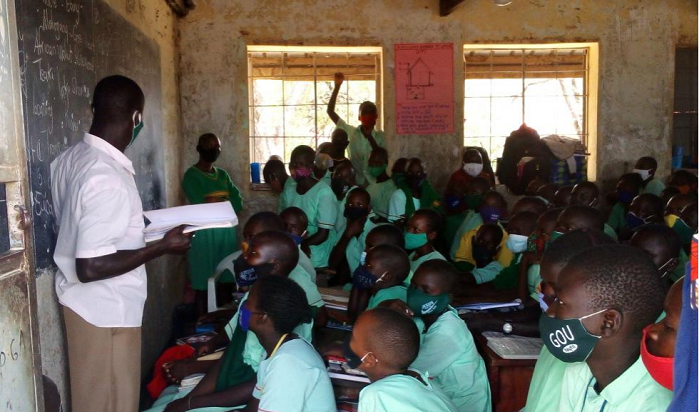Research by the Makerere University School of Public Health has revealed that the majority of Ugandans who were fully vaccinated against COVID-19 have not received booster doses.
The study carried out between February and March 2023 at the Malaba and Mutukula points of entry, was aimed at assessing the uptake of the COVID-19 vaccine, identifying influencing factors, and gauging the willingness of unvaccinated high-risk populations to receive the vaccine.
During the dissemination of findings, Dr. Joseph KB Matovu, one of the researchers, reported that among the 854 samples examined, none had opted for a booster dose after their initial vaccination.
A booster dose is an additional dose of a vaccine given after the first (or primary) dose has been provided. Booster shots are given to remind the body’s immune system of the infection it must defend against. This enhances or boosts the immune system.
Matovu said that many individuals believed that receiving a booster dose was sufficient protection against COVID-19, largely due to governmental emphasis on this aspect.
Records from the Ministry of Health showed that more than 10.2 million people representing 48 percent of the targeted 22 million people were fully vaccinated as of April 2022, but of these, only 59,542 have received booster doses that are supposed to increase the efficacy of the vaccines, which is believed to wane with time. This means over 10.1 million Ugandans who are fully vaccinated have not received their booster doses.
The researchers targeted truck drivers, health workers, sex workers, border post workers, local business traders, and market vendors on both the Mutukula and Malaba borders.
Explaining their choice for Mutukula and Malaba, Rebecca Nuwematsiko one of the researchers said borders were particularly active, facilitating high movement and consequently leading to increased COVID-19 cases. On Mutukula, Nuwematsiko said that was there skepticism about the existence of COVID-19 in Tanzania which later resulted in the surge in numbers at the Mutukula border.
Regarding vaccine uptake, the study revealed that 80.3% (686 individuals) had received at least one COVID-19 vaccine dose. Of these, slightly over half (59.6% or 409 individuals) had completed their vaccination schedule, with 53.1% from Malaba and 68.9% from Mutukula.
The research further indicated that 98.3% of adults over 45 have had at least one vaccine dose, higher than any other age group while younger age groups have much lower vaccination rates. In their recommendations, the researchers said that vaccination efforts should be strengthened in these border communities because they remain vulnerable to future outbreaks.
-URN





